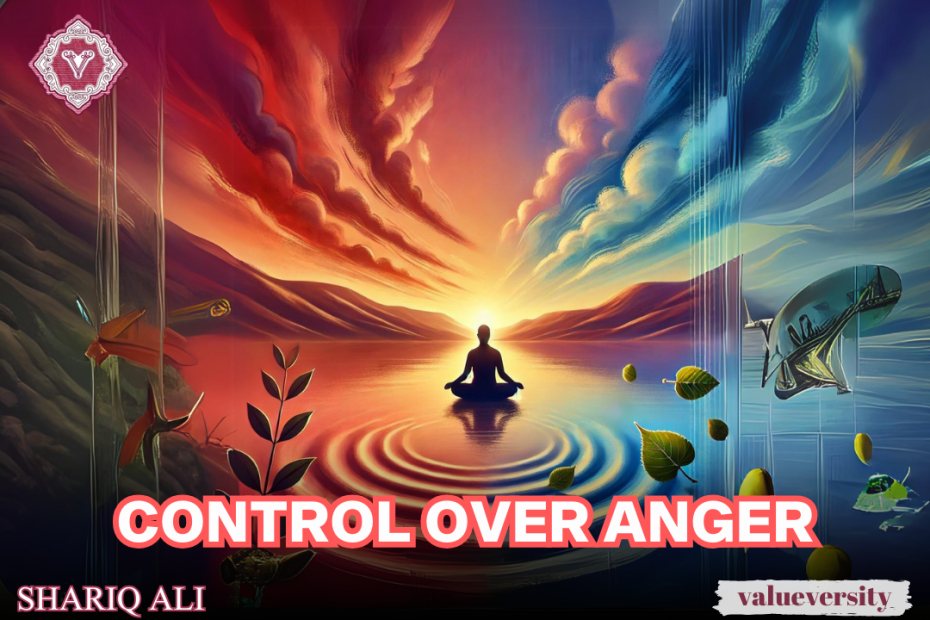Control Over Anger
A Thought-Provoking Essay
Shariq Ali
We all know that anger is considered a sin, but controlling it is not easy for any of us. In everyday life, we often encounter situations where anger naturally arises as a reaction. For example, another driver’s reckless behavior on the road or a child’s persistent refusal to listen. In such cases, it’s natural to feel angry, but expressing it at the right time and in the correct manner is crucial. Anger leads to negative consequences when we lose control and express it inappropriately or in a way that results in serious harm to important human relationships, for which we may pay a heavy price. Persistent anger can also lead to health problems. As the elders say, “Think before you speak.” If we pause for a moment before saying anything, especially in anger, it gives us time to think and might lead us to reconsider and reject the idea of expressing it. Pausing during a state of anger not only gives us a chance to reflect but also compels the other person to adopt a more appropriate behavior. Once we have gained control over ourselves, it is important to express our anger, but in a civilized manner. We should communicate our concerns and expectations to the other person, but while doing so, we must ensure that we do not make any severe attacks on their emotions or ego. Civilized expression of anger is necessary, but holding a grudge in your heart is not appropriate. Doing so is like punishing yourself. Allowing bitterness to take root within us is self-inflicted cruelty.
It is generally observed that those who consume a healthy diet and exercise regularly are better able to manage their stress and anger. Engaging in a light physical activity or even brisk walking can be effective in this regard. It’s easy to point out what makes us angry—like a child not keeping their room clean, slamming doors, or dinner being consistently late—but it’s important to delve deeper to understand the root cause of the problem rather than getting angry repeatedly. A better way to express anger might be to use “I” and “me” statements more frequently and to maintain respect and consideration for the other person’s feelings while doing so. For example, “I get upset when we don’t help each other clean the table and wash the dishes after a meal,” instead of saying, “You never help me, and I have to do everything alone.” In other words, it is more effective to address the issue while separating it from the other person’s ego and emotions.
Situations that provoke anger also offer us an opportunity to learn, and we should take full advantage of this. Using humor and wit is far better than sarcasm. Sarcastic remarks do not yield positive results. Many people are prone to sudden outbursts of anger. It is crucial to keep such situations under control. First and foremost, one should remain completely silent. Taking deep breaths to release internal tension or calmly advising oneself to stay composed can be effective. Distancing oneself from the situation and reflecting with a cool mind can be very helpful to overcome the immediate agitation. Most of us can control our anger with the help of these suggestions. However, if anger is a serious issue for you, there is no harm in consulting a specialist.
Shariq Ali
Valueversity
